Bob Mosley Opens Up on Moby Grape and His Solo Album Reissue
Bob Mosley stands as one of rock’s quietly enduring voices, best known as the bassist and singer of the legendary 1960s San Francisco band Moby Grape.
A gifted songwriter and soulful vocalist, Mosley helped shape the band’s singular blend of blues, country, and psychedelia with his rugged bass lines and heartfelt delivery. After Moby Grape’s promising but turbulent run was cut short by mismanagement and chaos, Mosley struck out on his own, releasing a solo debut in 1972, which is a powerful collection of eleven tracks that revealed his deep musicality and emotions.
You wonder how it ever slipped under the radar. The album moves from the sinewy rock of ‘The Joker’ to the horn-soaked soul of ‘Gypsy Wedding’ and the country ache of ‘Thanks.’ These aren’t slick, radio-polished tracks—they’re honest, lived-in songs. Mosley’s bass holds it all down with quiet assurance, and his voice feels weathered and wise, like it’s lived a thousand lives.
Now reissued by OMAD Records with restored clarity and warmth, the album finally gets its moment. It’s a second chance to hear a master at work—without hype, without gloss, just the songs and the soul behind them. More than a reissue, this is a long-overdue celebration of a resilient, criminally underrated artist whose music deserves to be heard, and heard again.
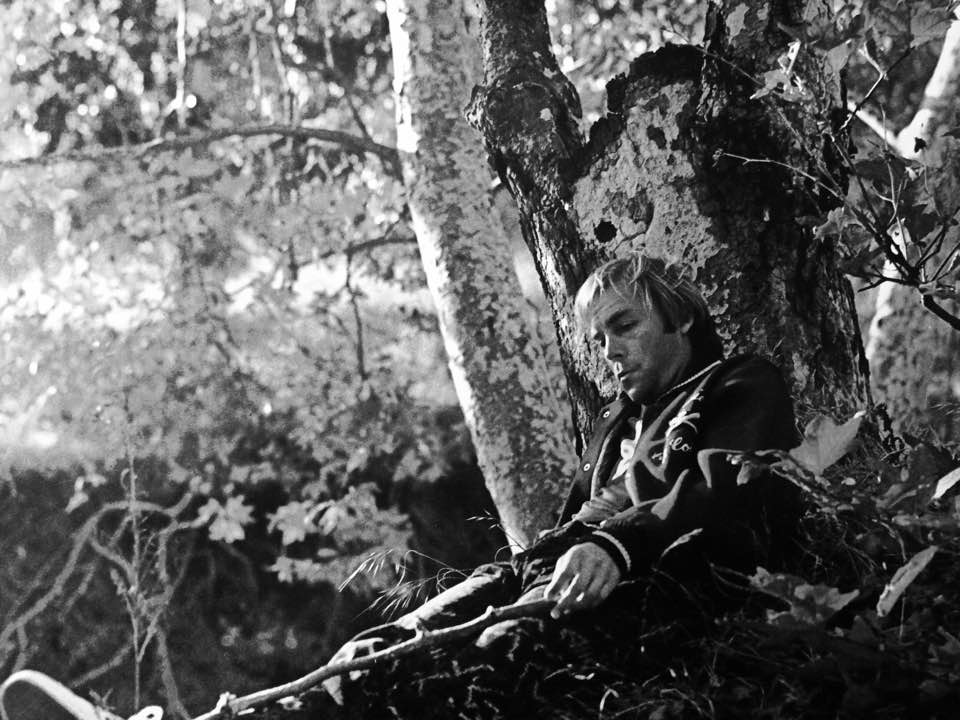
“We played, and after the gig, we left our amplifiers on, took off our clothes, and jumped in the water, nude.”
It’s great to have you. How are you doing? Were you excited about your 1972 Warner Bros. debut getting a reissue with OMAD Records?
Bob Mosley: Yes, really excited and looking at it and looking at what I used to look like, and I still have the same eyes, so I feel pretty good about it.
We all have our own way of writing songs—what’s your approach?
I take out the guitar and a pencil and some paper and sit down, and then I think of something to write about and write it down, and then I pick up the guitar and put some chords to it, and that’s pretty much it.
What was it like working with John DeNicola over at OMAD Records?
He’s very responsible. He’s on top of it all the way. So am I. I really like working with him.
Could you share a bit more about the recording process for your debut solo album?
We had already played as a band in different places, skiing in the winter and then in Hawaii in the summer, and when I went into the studio with the guys, we just worked it out in two weeks.
Let’s take it way back—how did you first meet Peter Lewis?
He called me on the phone and asked me if I’d come up and record, and his drummer Bob Newkirk told him that I was available, so I flew up to LA and met him at the airport, and we went to the studio and recorded a song.
I understand you were in The Joel Scott Hill Trio before that—what was that experience like?
Joel is a great performer. He played at my 9th grade graduation dance, and I saw him in a bar when I was 19. I snuck in, and I watched him play with the trio. He was remarkable. I learned to play bass from his bass player, and I got the job, went to LA, and started working with Joel and Johnny Barbatto.
What was the San Diego music scene like for music freaks like you in the early ‘60s? Were there plenty of clubs you hit up, and did any particular performer really inspire you?
Yeah, Joel Hill. There were a lotta clubs, and Joel Hill had a band called The Invaders, and I had a group called The Misfits. We worked at the Red Coat Inn on the east side of town, and Joel worked on the west side with his trio.
How did The Misfits come together?
Me and the guitar player Eddy Dunn played since we were 14 years old. We were playing music together, and we just got a drummer who played piano and just picked up the drums and learned to play from Joel’s drummer, and we got a gig at my uncle’s bar in California.
I know you had singles on Imperial Records and Troy Records in the early ‘60s. Do you have any memorable stories from those recording sessions?
It was the summertime, and we’d get up at 6 o’clock in the morning and go to Castie’s Bar and drink beer, and we’d get ready to go by 9:30 or 10 o’clock. We’d go to the studio and record. It worked out pretty well.
Then you joined the Joel Scott Hill Trio—did that move take you over to San Francisco?
Yes, it did. We got gigs to play in the Bay Area.
You also had a stint with The Vejtables, which eventually led to working with Jerry Miller, Don Stevenson, and The Frantics—releasing ‘Someday’ and ‘Human Monkey’ on Action Records in 1966. Was that the early spark for what eventually became Moby Grape?
The band got together through Matthew Katz in San Francisco, and we practiced and rehearsed there. Decided we’d make it a go, so we started rehearsal. So we started rehearsing at Coach Street and looking forward to gigs. We finally got some gigs. The Avalon and the Fillmore were open, so we did gigs there. Got tight. And that’s pretty much it. And then the way the songs worked out was that we’d rehearse and then write songs on our own, bring them to rehearsal, and then work them up.
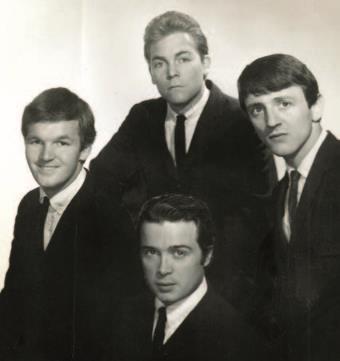
I love this part from my interview with Don Stevenson… would you mind adding some commentary to it?
We went to Hollywood at CBS studio and started recording and we worked two songs every other day. We got 11 or 12 down and we did some extra outtakes, took us a couple of weeks and we were done. So that’s pretty much what happened with the debut album.
I’d love to hear more about the Moby Grape debut album.
We were in New York, and I love New York. I had such a great time there, except for when Skippy went nuts. But it was my favorite place to go. The nightlife and the people and the city’s vibe were great. We worked up the tunes slowly. It took a while to work them up, and Peter wasn’t there for the whole thing. He went to LA, and his wife had a baby. So he couldn’t hang in New York, but he came back later on and we finished the album.
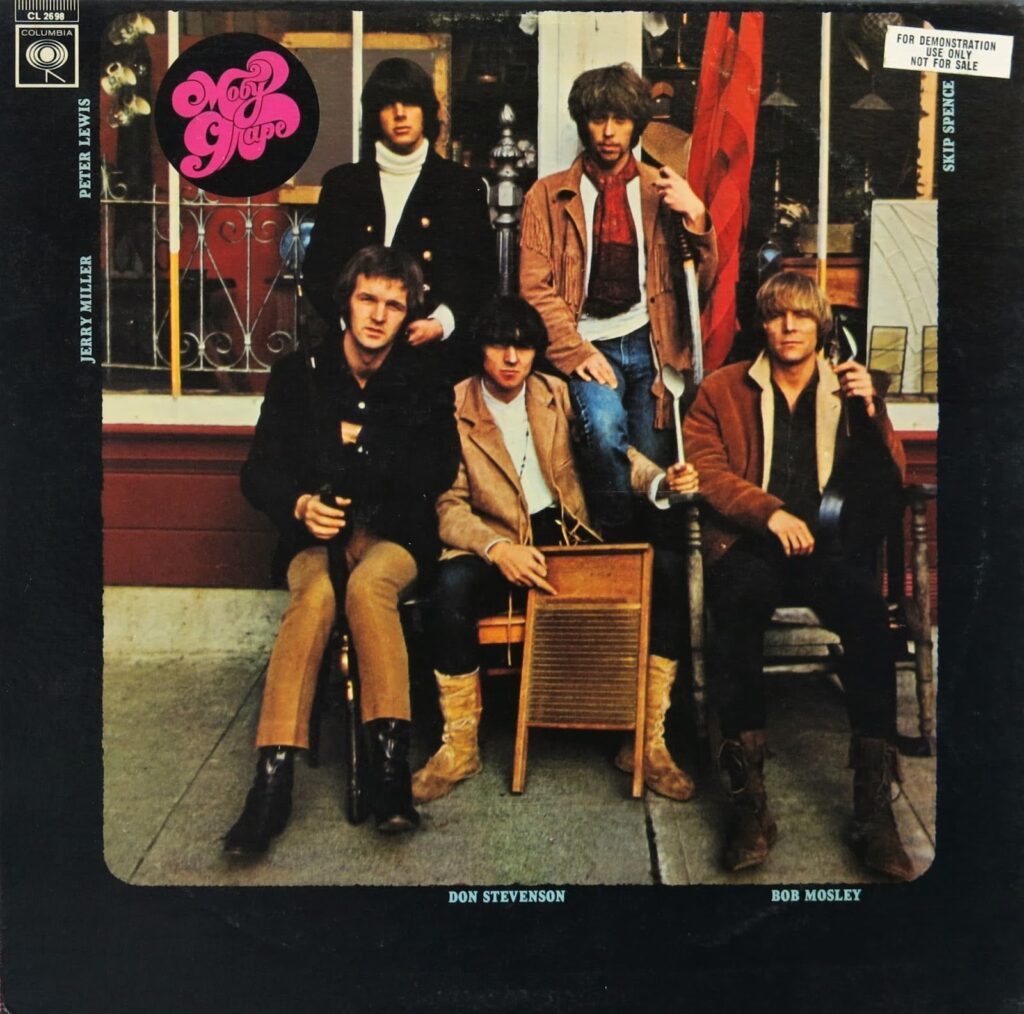
‘Moby Grape ’69’—we were in Malibu and recorded at CBS again. We had it down pretty pat and didn’t take much time to work up the tunes. It was another quick album in the studio.
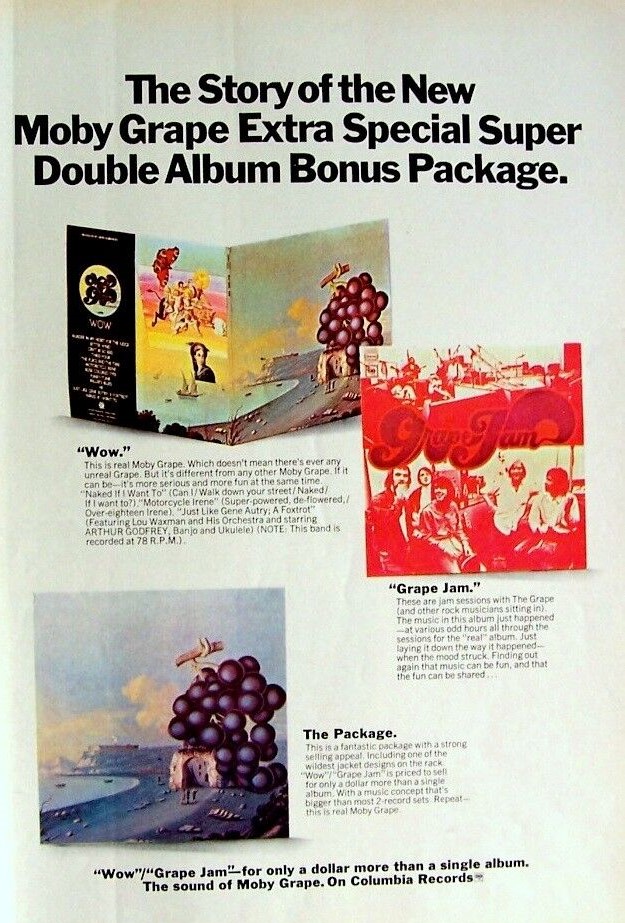
How did you first cross paths with Neil Young?
We had a place that we localized in Sausalito, California, called the Ark. It was named by Matthew Katz, and he leased the building and put in a bar, and we rehearsed and played there at night. We were the local band there. Neil and Stills and the rest of them—Dewey and Palmer and Ritchie Furay—came up to Sausalito and played opposite us at night. Then we hung around during the day, and we just palled around. That’s how I met Neil Young.
What was it like hanging out with The Ducks—playing alongside Jeff Blackburn and John Craviotto? Any fun stories from that time?
Jeff had a ’51 Pontiac convertible, and we were all in the car cruising up from San Jose. Jeff had forgotten that he’d left a couple of pounds of weed in the trunk, and we stopped the car. The cop stopped us because the taillight was out, and Jeff was sweating it. We didn’t know anything about it. Then he told us he had it in the trunk… We laughed hard.
Looking back, what was the highlight of your time with the band? Which songs are you most proud of, and what was your most unforgettable gig?
The Ducks. It was the catalyst in Santa Cruz, California, because the crowd was so great, and those songs—’Mr. Soul’ and ‘Trucking Man’—were the highlights. With Moby Grape, it was the Monterey Festival and meeting Loretta Young.
And what’s the craziest gig you can remember?
Seattle, Washington, at the Evergreen Lake. There was a platform out on the water. There was a walkway out to the platform, and you played on the platform. We played, and after the gig, we left our amplifiers on, took off our clothes, and jumped in the water, nude.
Did you all experiment with psychedelics back then?
Well, I didn’t experiment with them, but I took them. If I had a couple of days that I didn’t need to be anywhere, I took LSD. A couple of times—once with a girlfriend and once in the Hollywood Hills when Don came—and a bird started whistling and then two birds, then five birds, then twelve birds, then the whole symphony of birds filled the canyon with bird chirping. And it was amazing. At the Monterey Pop Festival, I did some LSD with Peter, and I had a bummer. It was after we played.
Your ‘72 solo debut has that raw, bluesy vibe that really sets it apart from the Moby Grape sound. With tracks ranging from hard-hitting rockers like ‘The Joker” to soulful, horn-driven tunes like ‘Gypsy Wedding’ and even country-tinged ballads like ‘Thanks’—how did you manage to capture such a diverse range of moods on one record? And how did collaborating with musicians like Allen Wehr, Woodie Berry, Frank Smith, the Memphis Horns, and Ed Black shape the final sound? What are some of your strongest memories from working on your debut solo self-titled album?
We rehearsed and played them at night in Squaw Valley, Nevada. It was a ski lodge, and we played during the winter. We worked up the tunes—we had the tunes down—then we went to Hawaii during the summer, and we played Hawaii and opened for Led Zeppelin. We had good studio time in Los Angeles. After all that, we were tight. The moods were picked off the tunes. It was a mood that I got into.
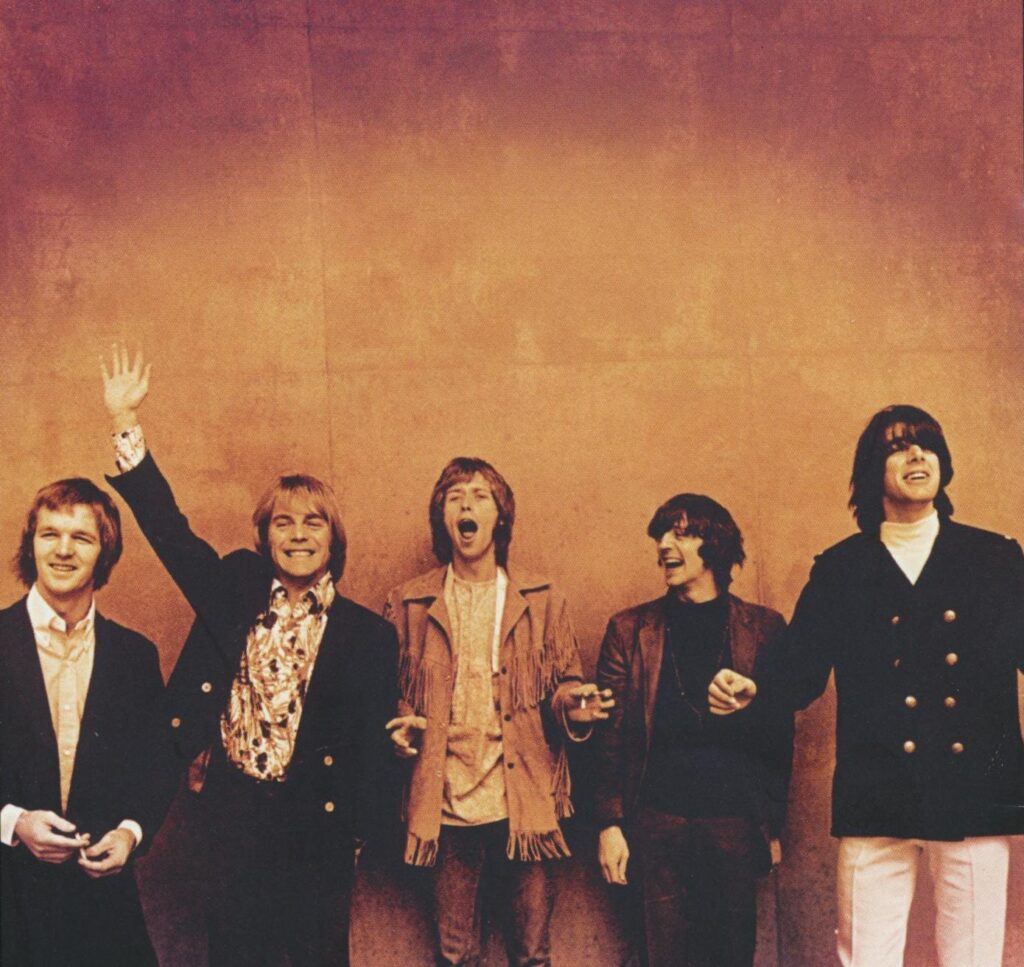
Critics and fans have mentioned that the original mix felt a bit light on the bass and drums—a curious choice for a record led by a renowned bassist like yourself. Was that an intentional production decision, or how did that come about?
We had formed the band around the tunes and working gigs, and so it was fun working with those guys. They were seasoned musicians, and they had played there long before I was with them, so they were tight.
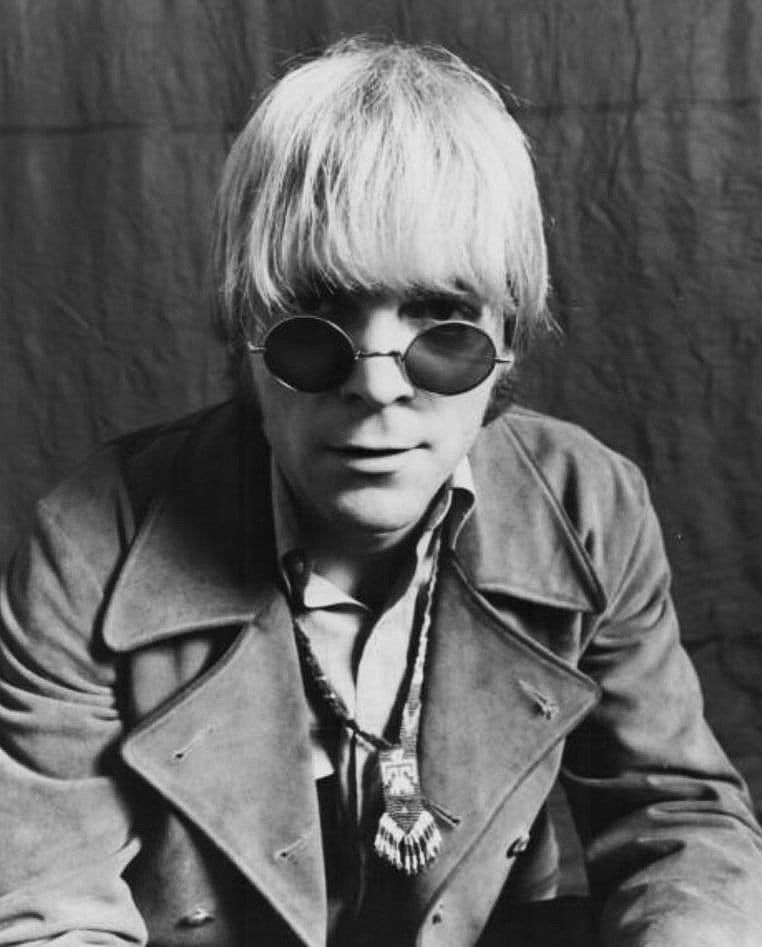
You’ve worn a lot of hats over the years—from serving as a Marine to overcoming personal challenges as a long-time musician. How have these experiences influenced your music and songwriting? Were there any moments that really defined your evolution as an artist if we look at your solo albums that followed?
It enhanced it quite a bit when I heard them over the phone. My wife Connie, she’s friends with the Grateful Dead and worked with them, and she had a Bose speaker for the telephone. We heard them over the speaker, and it really sounded like the bass and the kick drum were up in the mix much better than originally done.
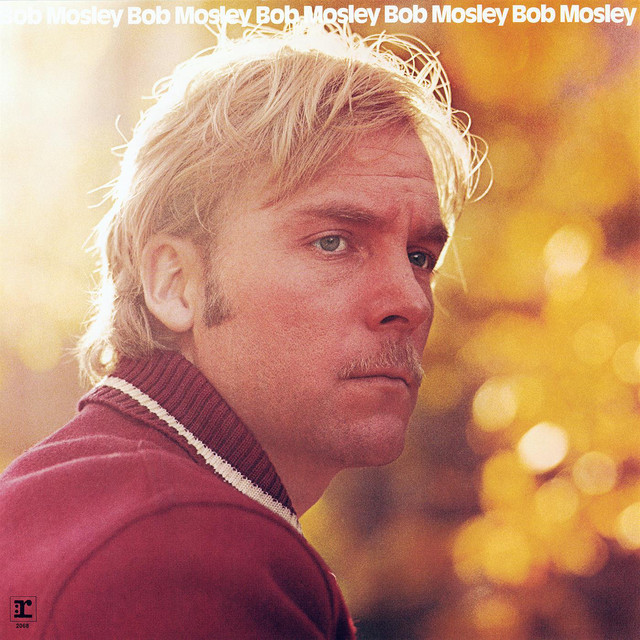
Now that your solo album is being reissued on CD (and maybe even on vinyl), what are your hopes for new listeners? How do you want them to connect with your music and the story behind it?
Solo albums were done without the hype, without the Moby Grape hype, so I felt much more comfortable in my own shoes as a musician and doing solo stuff. I think the solo stuff shows that I’m much more comfortable than I was with the Grape. It makes me feel good to listen to them now. They sound great.
I want them to have fun, first of all, because that’s what we did. We had fun doing them, so I hope that reflects in what those people listen to and hear and that they become fans. That’s the hope for all the recordings.
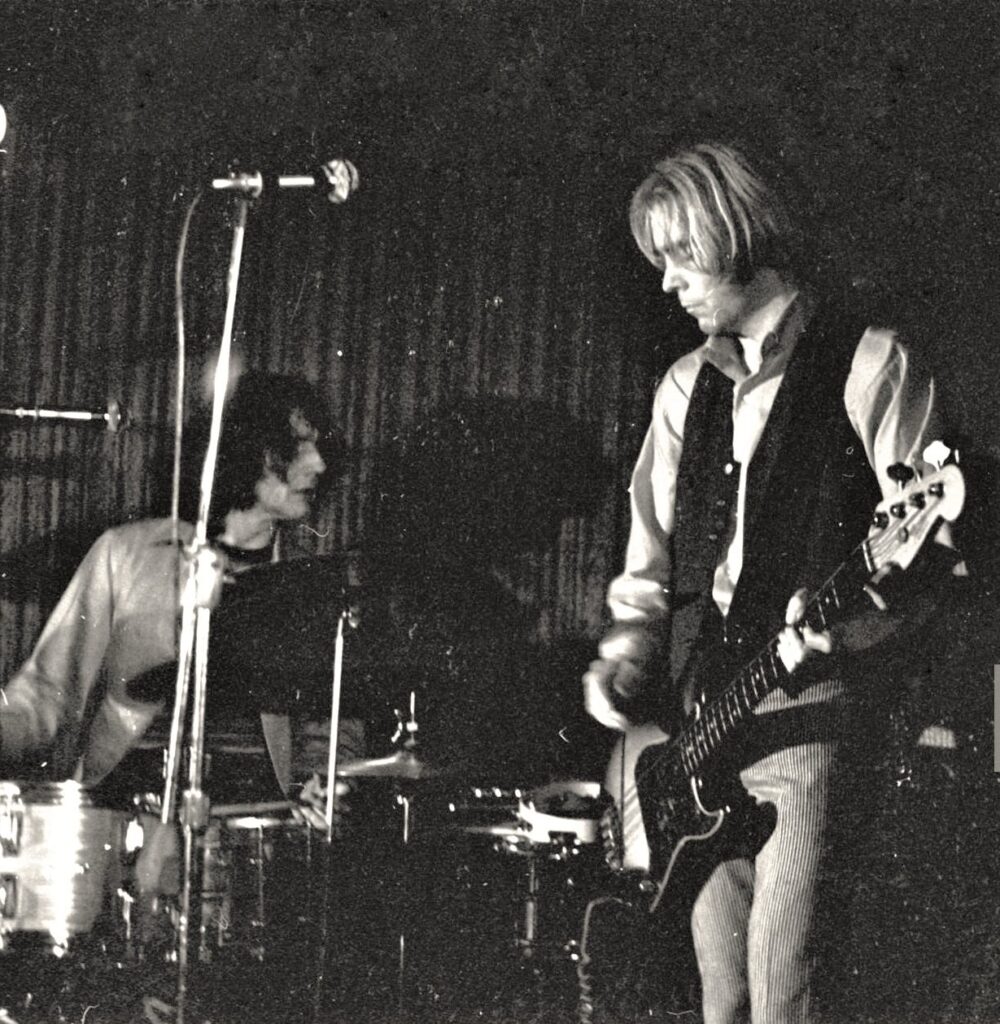
Who were some of the key players who influenced your style? Were there particular techniques that really inspired you?
Yeah, well, there was Harold Kirby, of the Joel Scott Hill trio back in San Diego and the early days at the Red Garter Bar at the beach. I was 19 and I went into the club and listened to him. I heard him at the Blue Note, which is downtown San Diego, and Harold Kirby was playing bass but I had to stay outside. I couldn’t get in. But the Red Garter gig was great because I could watch his fingers. It was the first time I saw a bass player play with his fingers. I thought they always played with a pick. His style was the driving force in the trio, really drove the beat. Willie Kellogg was the drummer and he and I were pals for years. He just died about four years ago. He died of cancer and he suffered for a while and I didn’t like that. He was a good friend and mentor. And Joel died too, about five years ago. I talked to him just before he passed, and he said, “All I care about is getting together with the bass player and playing on another album.” Yeah, well, Harold Kirby was my mentor. I lived with him for a while when I got back to San Diego from San Francisco and we’d drink and play music all day and night long.
What currently occupies your life?
Listening to music. I have a collection of CDs and I listen to maybe four or five CDs a day. I play guitar a little bit, and I don’t play bass very much anymore, but I got a new acoustic bass that I like and use for recording. That’s pretty much it. I walk every day and I go to the VA because I have glaucoma, so my eyesight is better. The VA has been pretty good to me, except they overdosed me on some medication and I fractured a vertebra in my back. I spent some time in the hospital, but they paid for it so I let it go.
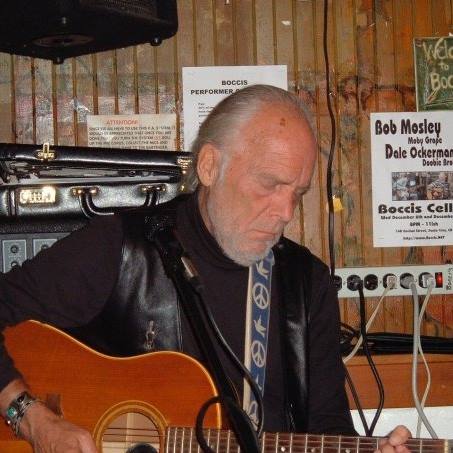
Thanks so much for taking the time to chat. Any final words you’d like to leave us with?
Yeah, it’s not over. There are recordings that I have in the can that will be released on an upcoming CD in the future. I don’t know when that will be, but stay tuned.
Klemen Breznikar
Headline photo: Moby Grape (Photo courtesy of the Peter Lewis Archive
OMAD Records Official Website / Facebook / Instagram / YouTube
Moby Grape | Interview | Peter Lewis | New Album, ‘Imagination’
Moby Grape | Interview | Don Stevenson | “The chemistry was undeniable”

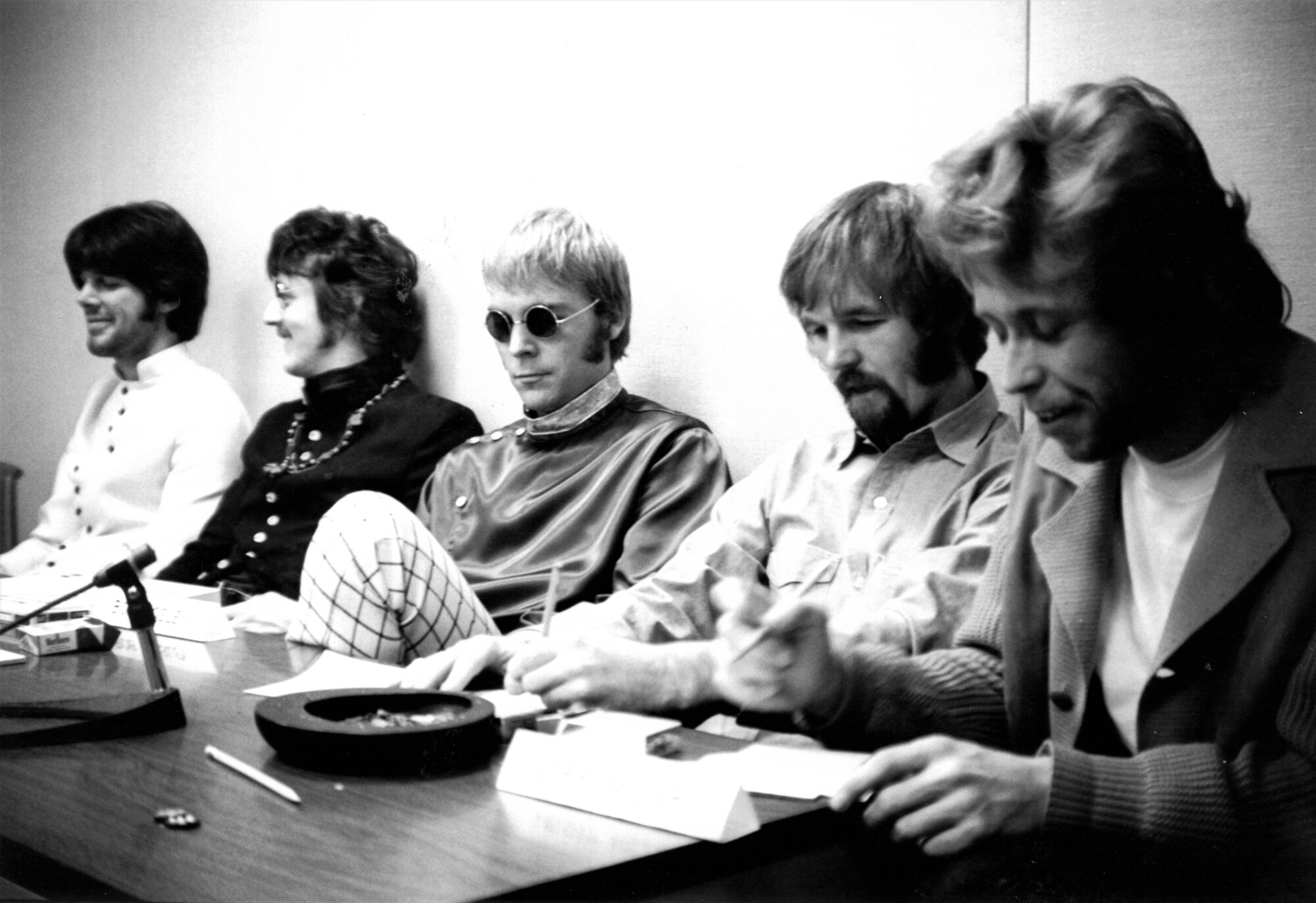
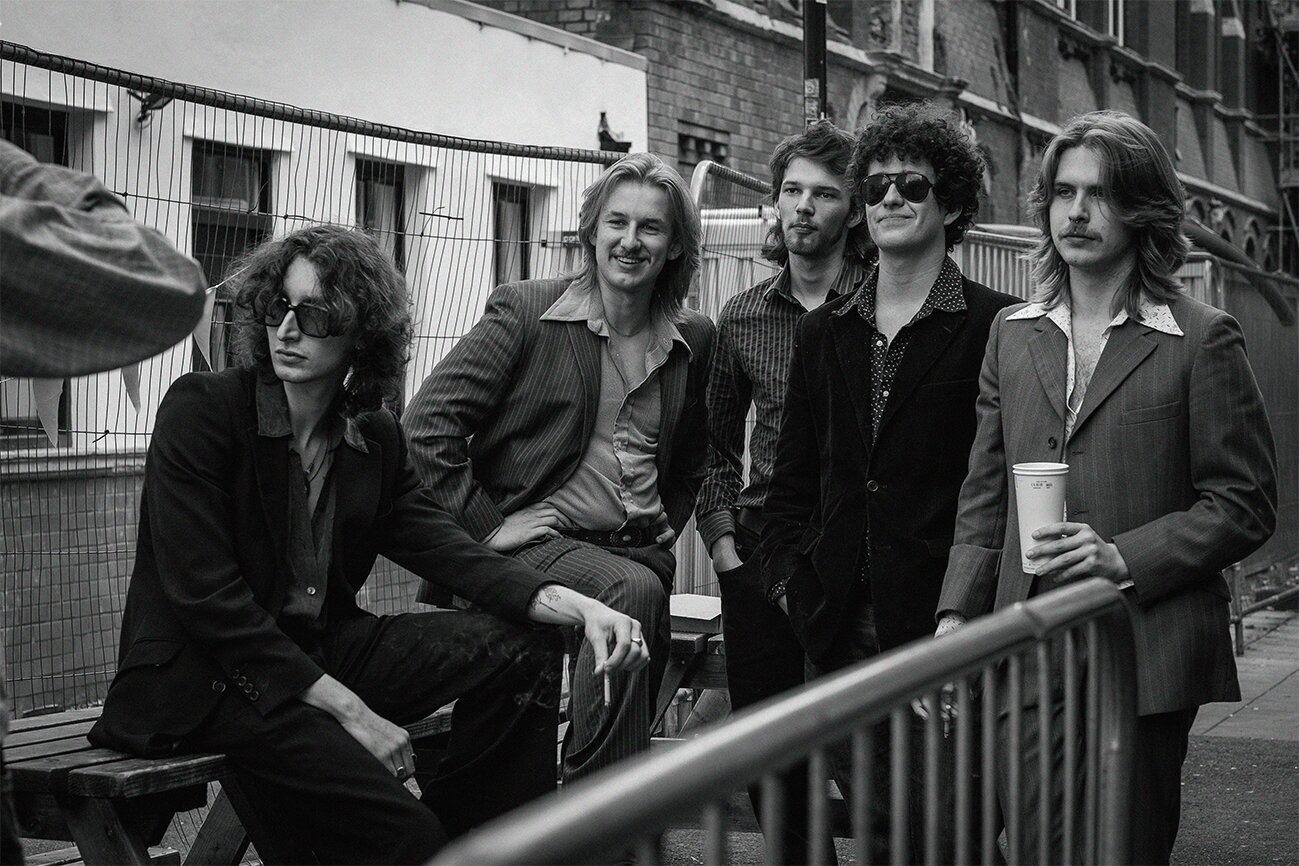
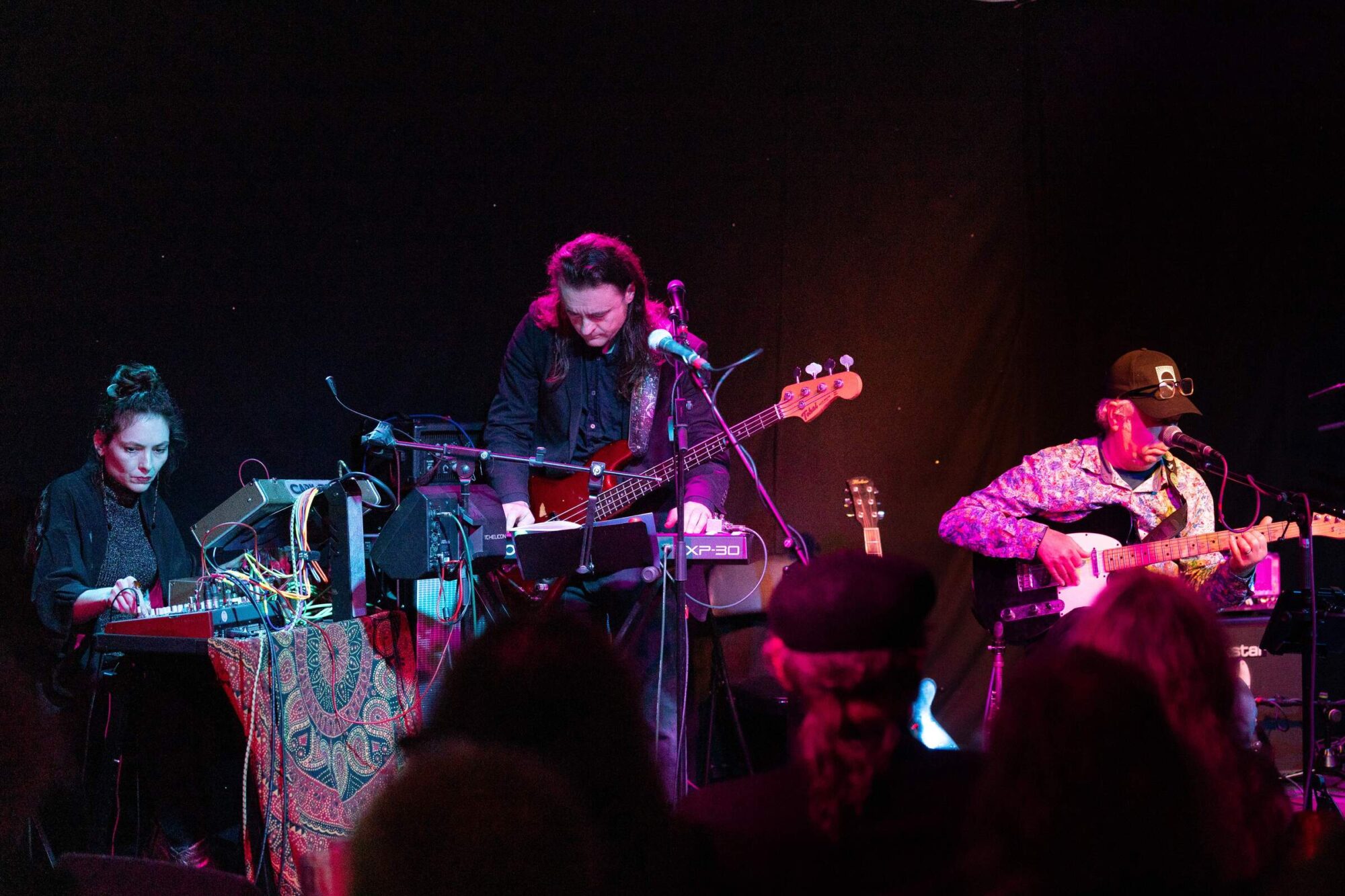
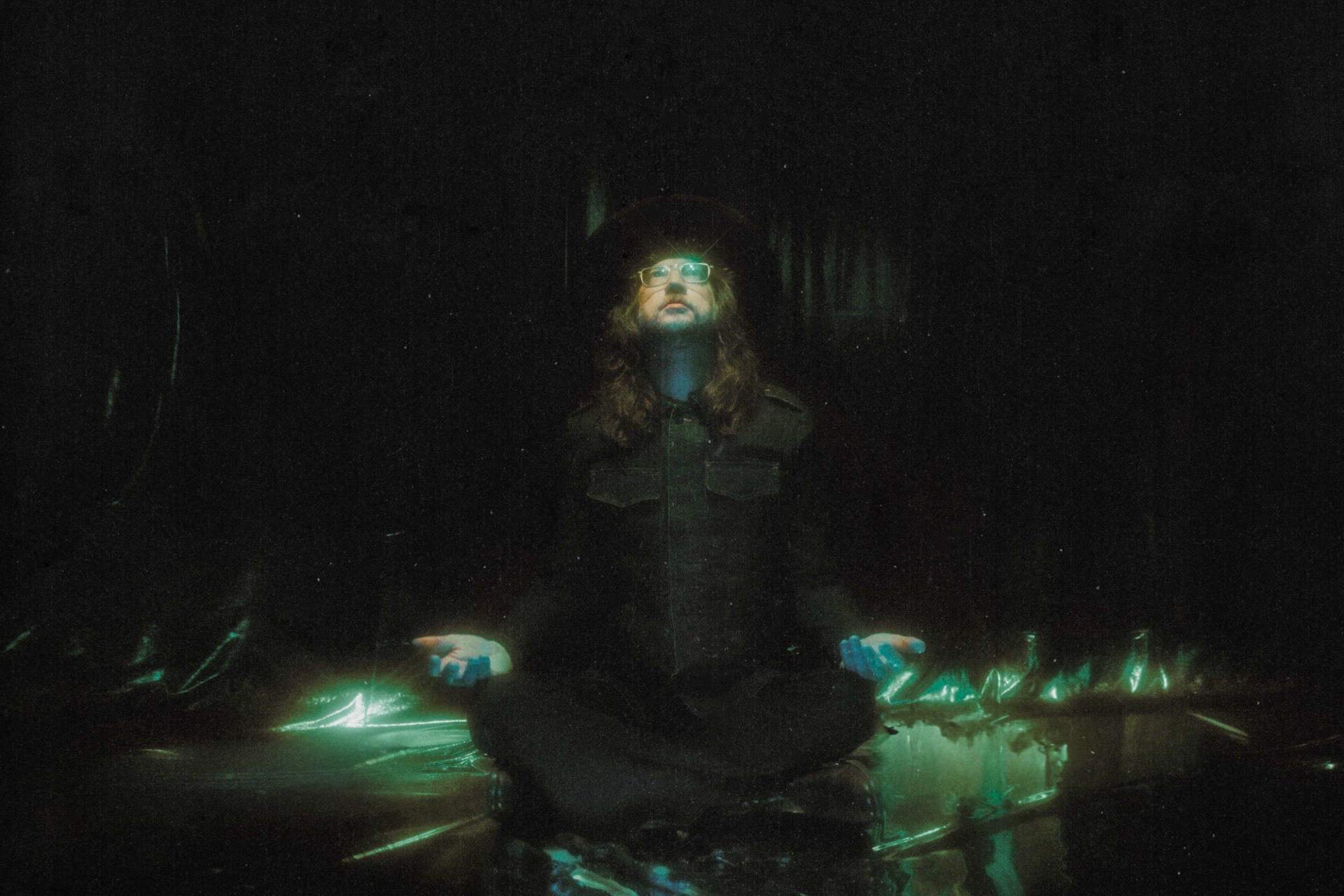
I was just starting to play bass when I first saw Moby Grape. I was still in high school in San Francisco. I didn’t think there was anything more cool than a bass player who could sing and play like that, doing both so well simultaneously. I still listen to his bass lines. I think it was awful what happened to the Grape, not as awful as say, what happened to Badfinger, but almost as bad. They all deserved better. At least, thanks in part to YouTube, their music as well as Bob’s music is now being exposed to younger listeners. I was very lucky to have grown up when and where I did.
My band, the Overbrook Express, played with Moby Grape, Big Brother, and Morning Glory at Rio Nido Russian River in July 1967; best show I ever saw in my 35 years playing (mostly in SF Bay Area). Later I talked with Bob at a few of the gigs MG and The Ducks did during their break. He was the best bass player and vocalist I had ever seen, without a close second. In a class by himself in those days. I;ll never forget it. I went to so many Moby Grape shows that Bob saw me once and walked over and said “Youre gettin to be like one of the band”. I was a big fan.